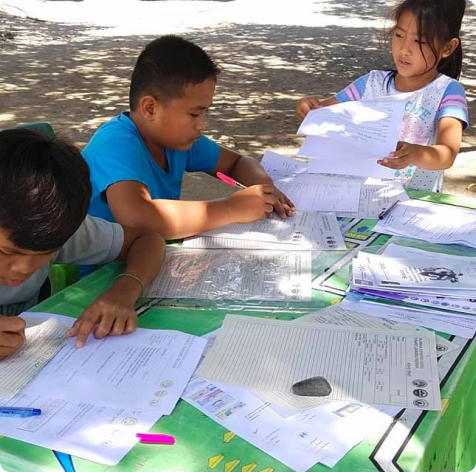Education Code
The Bangsamoro Education Code is one of the legislations that is required to reform the education system in the region.
About the Education Code
The Bangsamoro Education Code (BTA Bill No. 70) provides for the establishment, maintenance, and support of a complete and integrated system of quality education in the Bangsamoro.
The Education Code embodies the BARMM’s commitment to inclusive, relevant and quality education with the principles of Moral Governance at its core. The Bangsamoro Education Code is seen to improve internal processing systems to promote acceptable governance practices, transparency, and accountability.
The bill upholds the ministry’s advocacy of no Bangsamoro child shall be left behind, which aspires to embody the hopes and ideals of the Bangsamoro people for an inclusive, culture-based, effective and sustainable education framework.

Key Features
The Education Code shall cover and govern all education systems, whether formal, non-formal, public or private learning institutions in all levels of Basic, Higher, Technical and Madaris Education. Here are the Key Features of the Education Code.
Frequently Asked Questions
The Bangsamoro Education Code or BAA Act No. 18 is an act providing for the establishment, management, and support of a complete and integrated system of quality education in the Bangsamoro. It is one (1) of the seven (7) priority legislations to be passed by the BTA Parliament as mandated by RA No. 11054 or the BOL.
The act shall be applicable to Bangsamoro Education system consisting of education systems including formal, non-formal and informal, public and private learning institutions, in all levels of education: Basic, Higher, Technical, and Madaris education.
- Inclusivity
- Equity
- Rights-Based
- Rooted in Context
- Integrated
- Balanced
- Moral Governance
The Ministry shall be primarily responsible for the formulation, planning, implementation, and coordination of the policies, plans, programs and projects in the areas of formal and non-formal education at all levels, supervise all educational institutions, both public and private, and provide for the establishment, maintenance, and support of a complete, adequate, and integrated system of education relevant and responsive to the needs, ideals, and aspirations of the Bangsamoro People.
A Bangsamoro Education System that is integrated vertically and horizontally on all streams, levels, delivery modes, and types of education which allow for multiple entries and multiple exits within the system for learners.
The BEC was divided into three (3) thematic areas
- The Ministry (Governance)
- The Education Community (Access)
- The Bangsamoro Education System (Quality)
The learning system of BARMM still follows the same format as the same content and context from the Department of Education (DepEd), TESDA, and CHED. However, there had been provisions made to ensure the integration of Madaris Education in all levels of the education system which is one of the unique features of BARMM.
The Office of the Ministry of Basic, Higher and Technical Education consists of the Office of the Minister, the Deputy Minister, and its support services are responsible in making sure that such vision, mission, and goals are met in the progress of Education in BARMM.
There shall be four Bangsamoro Directors-General, who shall be the highest careers officials if the Ministry, with appropriate eligibility, and know-how technical skills in planning, leading, and managing each sector they represent to better the quality of education that Bangsamoro learners expects to acquire. This compose of:
- Director-General for Basic Education;
- Director-General for Higher Education;
- Director-General for Technical Education; and
- Director-General for Madaris Education.
The Bangsamoro Government may provide assistance to private educational institutions in the form of grants and scholarships, or loans from the government financial institutions, in recognition of their complementary role in the educational system; provided, that such programs meet certain defined educational requirements and standards and contribute to the attainment of Bangsamoro and development goals.
Any person upon conviction of an act in violation of the provisions relating to operation of educational institutions and educational programs without authorization, and/or operation thereof in violation of the terms of recognition, shall be punished with a fine of not less that One Hundred Thousand Pesos (Php 100,000.00) nor more than Two Hundred Fifty Thousand (Php 250,000.00) or imprisonment for a maximum period of three (3) years, or both, in the discretion of the court.




